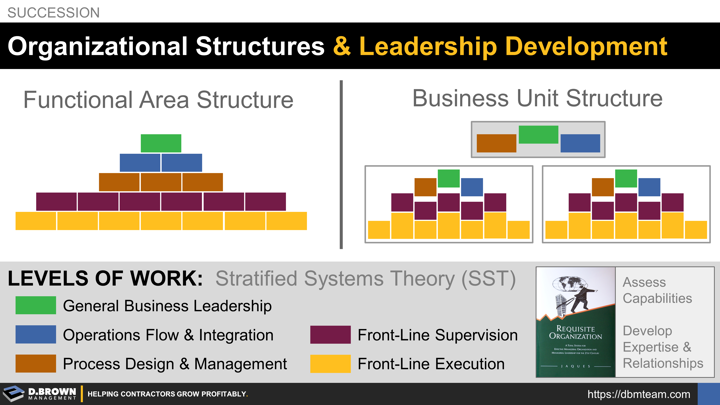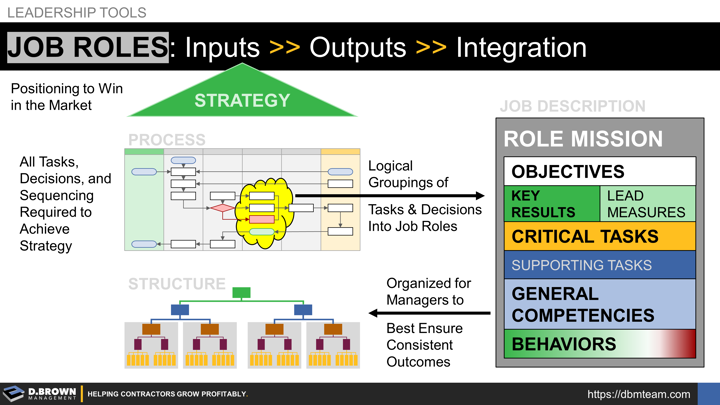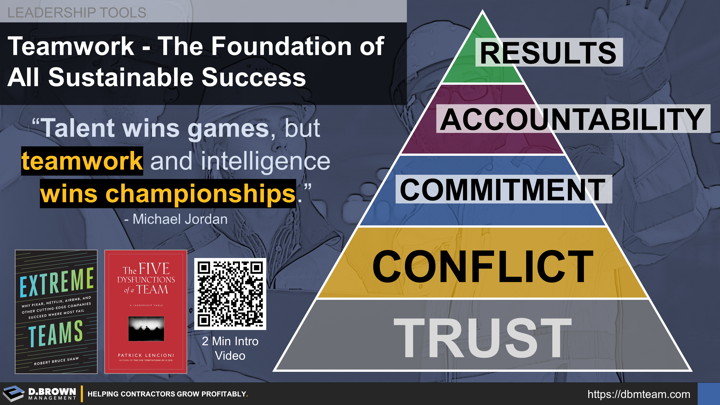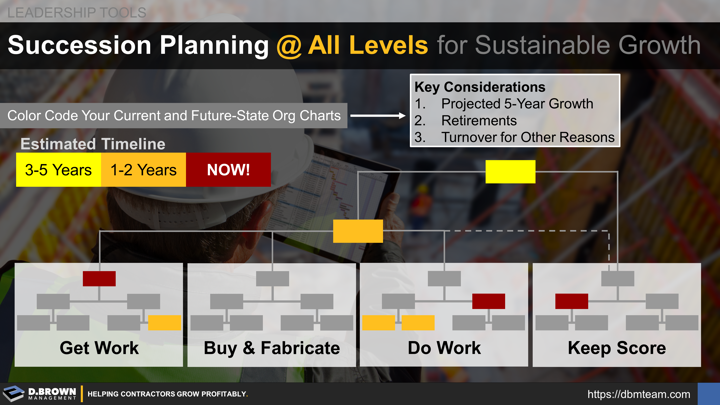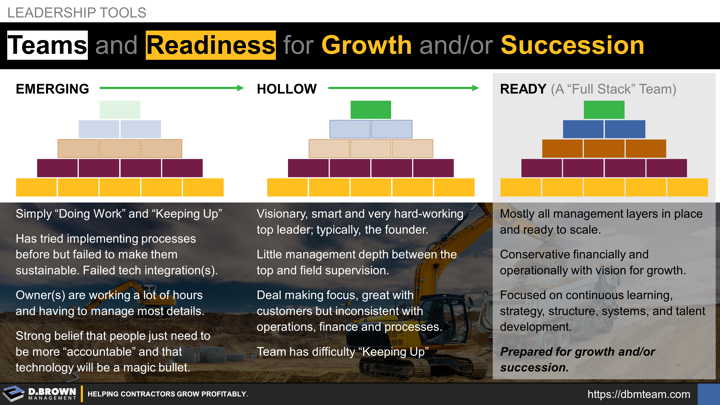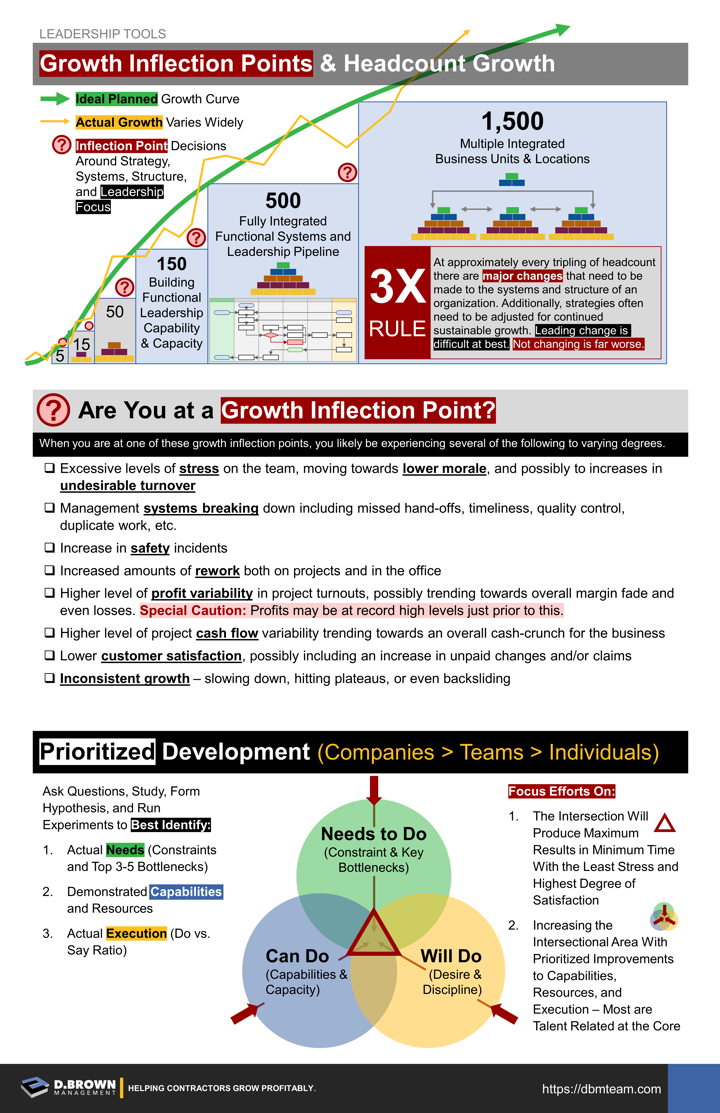As contractors look at their organizational structures with an eye toward both sustainable growth and succession, they must balance the efficiency that a functional area structure provides with the leadership development of a business unit structure. Read more...
Effective job descriptions are the foundation every contractor requires to recruit, develop, and retain talent. They need to be wrapped around performance-based Key Results aligned with your strategy, systems, organizational structure, and compensation. Read more...
Construction is the most complex TEAM sport there is and the teams that work best together win. It is that simple. The contractors who know how to develop the best teams are thriving in all market conditions including the shortage of construction talent. Read more...
If a construction company is growing at 15% per year, it will double in size about every five years. Therefore, in general, every position must have identified and be training at least two people that will be capable of succeeding them within five years. Read more...
Whether you are focused on growing profitably or preparing for an ownership transition, the strength of your team and organizational structure is a major factor. Read more...
Growth Inflection Points and Prioritized Improvements (11X17 Summary Sheet)
Every contractor goes through very predictable stages of growth. Each of these stages of growth require a different leadership focus, as well as different strategies, systems, and structures. In addition, the team will grow, grow, and then grow some more as new talent is added at each stage. Please contact us for a summary of these stages of growth, a simple self-evaluation checklist, and how to sort through the many competing priorities for improvement.

